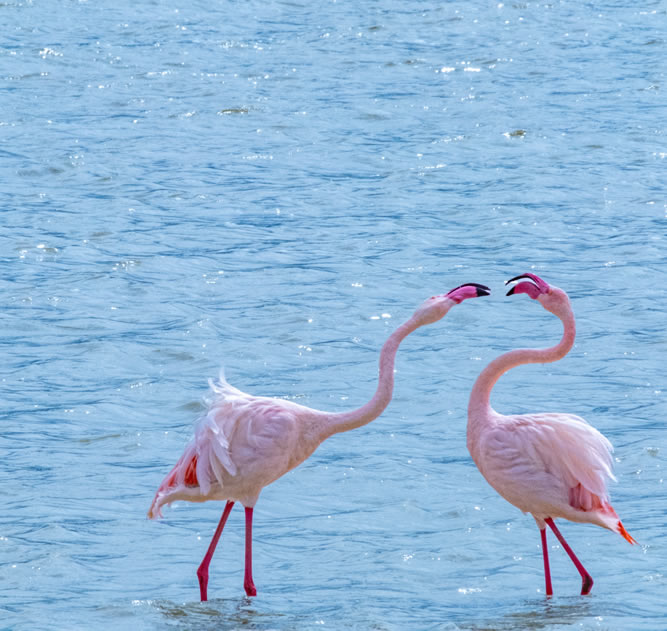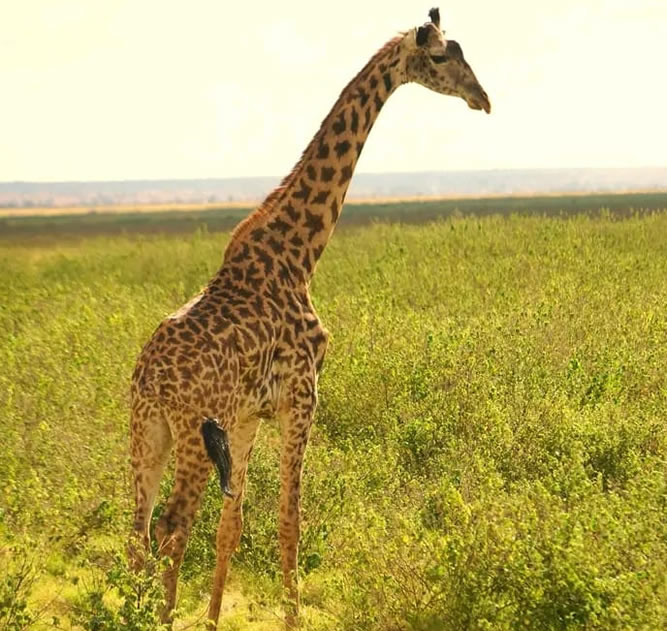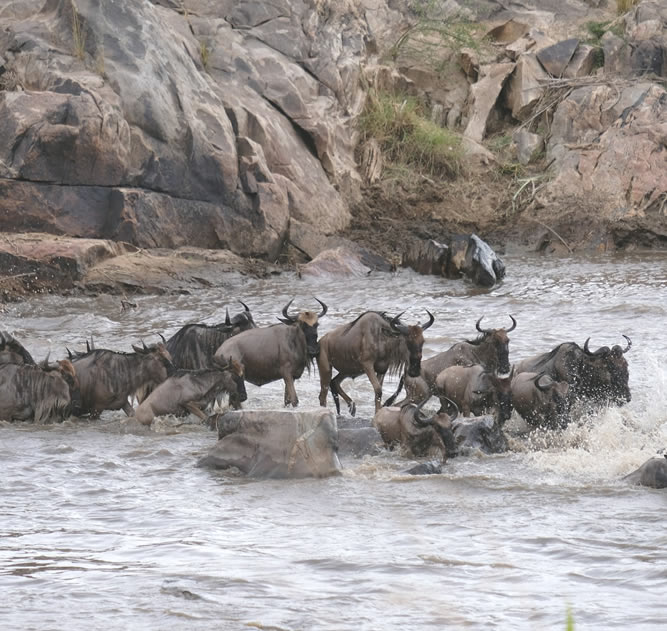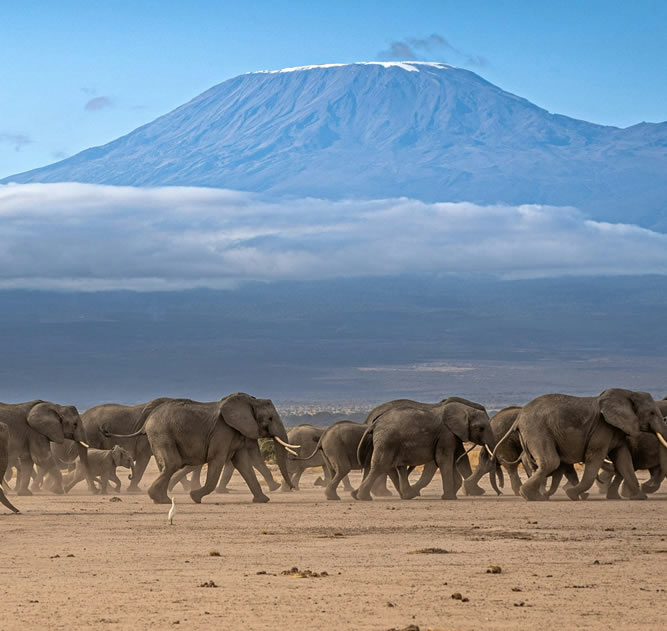



| Days | 7 Days 6 Nights |
|---|---|
| Highlights | Sightseeing Tours, Adventure Tours, Safari Tours |
| Transport | Jeep afari |
A 7-day safari in Kenya, focusing on the stunning wildlife and landscapes, can provide a memorable experience. Below is a suggested itinerary for a 7-day safari in Kenya, covering some of the best national parks and reserves.
As your safari begins, you’re welcomed by the fresh morning air, the sounds of birds and distant wildlife, and the sight of a vast African landscape stretching before you.
Day 1: Nairobi – Lake Nakuru NP – Lake Nakuru Sopa Lodge (L D)
On arrival in Nairobi at 06:00 hrs, we will pick you up and contact a short briefing the immediately start our safari, we will have a first highlight of the tour, the Lake Nakuru National Park. Here, we visit Lake Nakuru as the most well-known lake of the Rift Valley. For being famous all over the world for its flamingos, the lake is one of the natural wonders of the world. At times, there are up to 2 million flamingos at the lake, which form a beautiful pink ribbon around the shore. In addition to seeing this amazing scenery, we also have a good chance of seeing rhinos and leopards. From our lodge we have a magnificent view over the lake.
Day 2: Masai Mara National Reserve – Mara Sopa Lodge (L D)
After your breakfast, we drive to the Masai Mara National Reserve considered as one of the largest and most beautiful protected areas of Kenya and reveal the originality of Africa. Arrive and check in at Mara Sopa in time for lunch, After lunch we will have some time to relax before we embark on the first game drive through the savannah landscape of the Masai Mara Game Reserve, with a good chance to track down the Big Five (elephant, buffalo, lion, rhino, leopard).Come back for dinner and overnight our Lodge.
Day 3: Masai Mara National Reserve – Mara Sopa Lodge (B L D)
After breakfast, we will do a full day game drives in the Masai Mara National Reserve. This park is famous for its savannah landscapes and its wildlife concentration per square km. The prospects are good to observe all those fascinating animals that can usually only be seen in numerous nature documentaries. We will have a picnic at a site in the Mara River, bordering the Serengeti. The river is part of the Masai Mara-Serengeti ecosystem, which is particularly known for the largest wildlife migration on earth in the world. Every year, Wildebeests, zebras and antelopes form a huge animal trains cross the brown, foaming river full of crocodiles.
Day 4: Lake Naivasha – Lake Naivasha Sopa Lodge (B L D)
After breakfast we drive to Lake Naivasha. On our way we will pass by a Masai Village where we will learn more about their rich culture. Lake Naivasha, the highest and most beautiful lake in the Rift Valley, where especially the bird-watchers, with over 400 documented bird species will be pleased. At an altitude of 1910 m, the water is crystal clear and surrounded by thick papyrus. Arrive and check in at Lake Naivasha sopa lodge in time for lunch, after a shot rest, we will do a boat trip to the lake and experience more of the attractions found in the lake. The Lake Naivasha Sopa Lodge is surrounded by a vast terrain, which varies in landscape. Thus we find steppe landscape, but also grass and trees come close like in a local park. You may be able to observe the many animals roaming around the Lodge in search of food. At night it is fun to look out the window and see the hippopotamus within a few meters from the lodge warthogs or even giraffes on your way. Overnight and dinner at Lake Naivasha sopa lodge.
Day 5: Mt Longonot National Park – Amboseli – Kilima Safari camp (B L D)
Walk up very early in the morning and take our breakfast then check out and drive to Mt Longonot National park entrance, after checking in we head to the hiking starting point where we will get a guide and put on the hiking gears. After some briefing we start our hike to this extinct volcano up to the crater which takes about 2 hours then go round the crater and before descending down to our starting point, take our picnic lunch then we drive to Amboseli National park through Nairobi where we will arrive at our Tented camp in the evening, check in , refresh and relax after this tiresome day.
Day 6: Amboseli National Park – Kilima Safari camp
The day will spend at Amboseli National park and make full day game viewing at the park. Picnic lunch will be taken at the Observation hill. This park jewel is not only a unique panorama of Mount Kilimanjaro, but also one of the best wildlife areas to observe elephants at close quarters. Amboseli is a small park with numerous zebras, wildebeests, Thomson gazelles, Grant gazelles, buffalos, waterbucks, hippos, lions, cheetahs, jackals and hyenas. A highlight of the park is the Observation Hill, from which we will have a stunning view over the swamp and savannah landscape. Dinner and overnight at our tented camp
PRICE INCLUDES
All park entrance fees
All game drives and transfers in a good customary minibus or Land cruiser on safari
Unlimited game drives up to 6pm (sundown)
Breakfast (B) / lunch (L) / dinner (D) as indicated
Accommodation in a double room in mentioned accommodations or similar
Local English speaking driver guide.
Enough bottled water each day
Detailed travel information.
PRICE DO NOT INCLUDE
International flight.
Visa for Kenya (about USD 50)
Beverages
Tips
June to October and January and February
June to October and December to March
April and May
June to October
March, April and May (Peak of the Wet season)
GROUP OR PRIVATE, 4×4 JEEP SAFARI Kwetu Safari Safari Tour features Days 8 Days 7 Nights Highlights Sightseeing Tours, Adventure Tours, Safari Tours…
GROUP OR PRIVATE, 4×4 JEEP SAFARI WILD CHEKERS SAFARI Tour features Days 9 Days 8 Nights Highlights Sightseeing Tours, Adventure Tours, Safari Tours…
GROUP OR PRIVATE, 4×4 JEEP SAFARI True African wilderness safari Tour features Days 9 Days 8 Nights Highlights Sightseeing Tours, Adventure Tours, Safari…
Trustindex verifies that the original source of the review is Google. Trustindex verifies that the original source of the review is Google. Trustindex verifies that the original source of the review is Google. Trustindex verifies that the original source of the review is Google. Trustindex verifies that the original source of the review is Google. Trustindex verifies that the original source of the review is Google. Trustindex verifies that the original source of the review is Google. Trustindex verifies that the original source of the review is Google. Trustindex verifies that the original source of the review is Google. Trustindex verifies that the original source of the review is Google.
Best Memory Safaris operates on excursions and safaris in East Africa. we also offer tailor made tour programs which specially fit your travel plan, including Mountain trekking,walking safaris and Social project visits. Our Kenyan office is located on the South Coast of Mombasa at Diani Beach and managed by a Team of seasoned professionals. We pride over 15 years experience and international class exposure in safari business.
No WhatsApp Number Found!
WhatsApp us